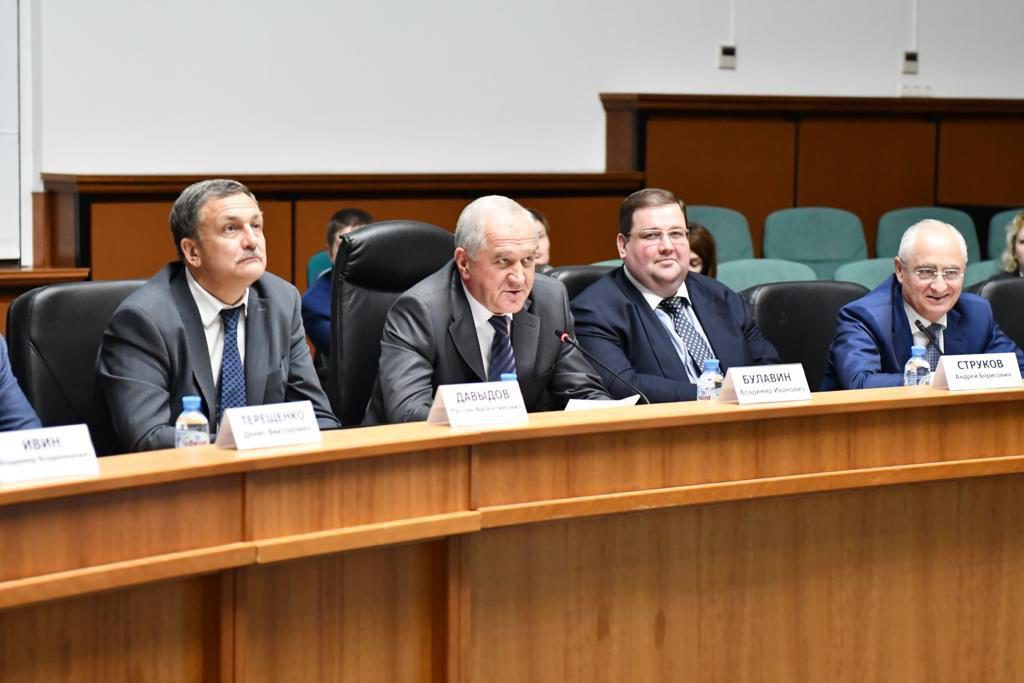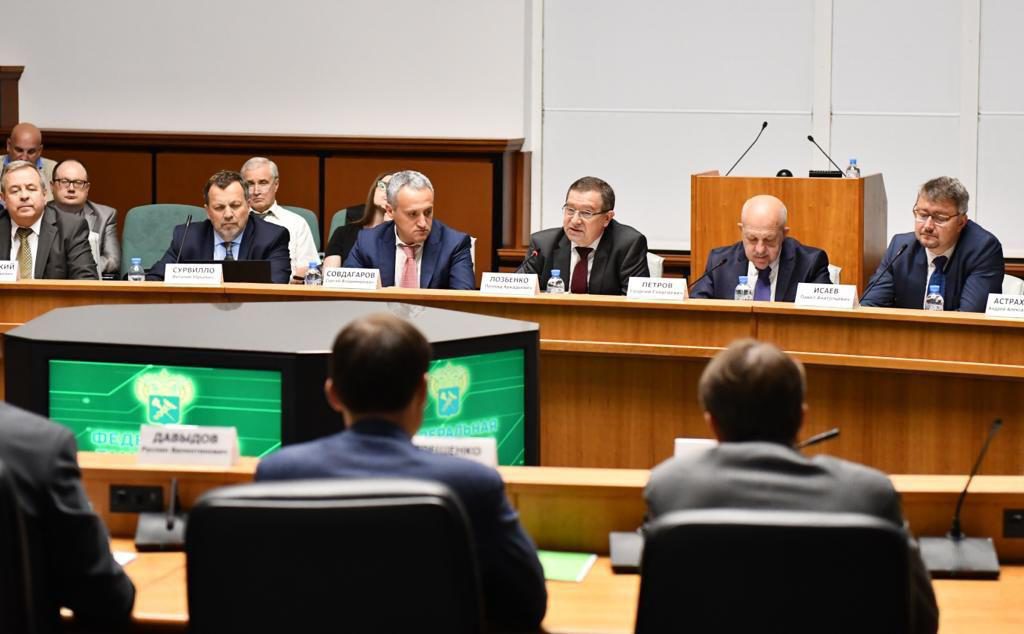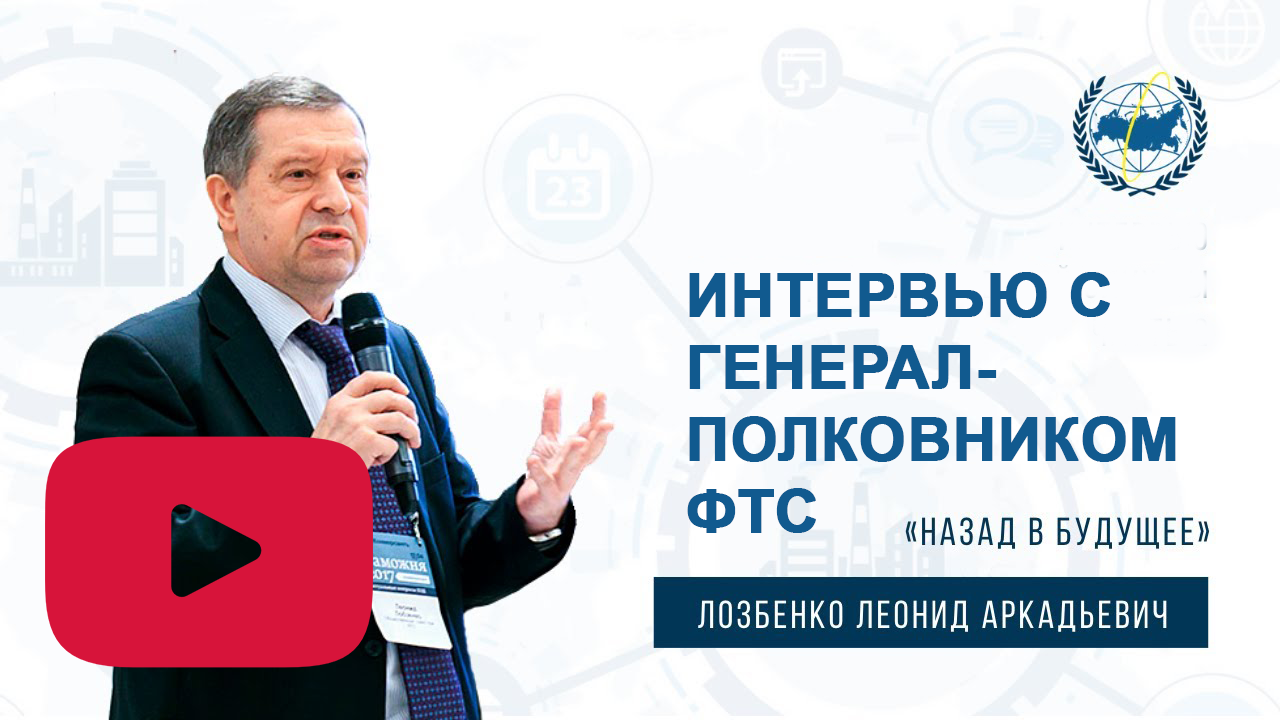
On July 3, a joint meeting of the Public Council and the Expert Advisory Council on the implementation of customs policy was held at the Federal Customs Service of Russia, at which an extremely important topic was discussed – the new format of the Russian customs, which should determine the development path, role and place of the customs service in the system of state bodies for the next ten years.
The work of the joint meeting of the Public Council under the Federal Customs Service of Russia and the Expert Advisory Council for the implementation of the customs policy under the Federal Customs Service of Russia began with a discussion of the draft Strategy for the Development of the Customs Service of the Russian Federation until 2030. Vladimir Bulavin, the head of the Federal Customs Service, made a detailed report on this issue. He recalled that today the implementation of previously adopted fundamental documents – the Comprehensive Program for the Development of the Federal Customs Service of Russia for the period up to 2020 and the Strategy for the Development of the Customs Service of the Russian Federation until 2020 – is at the final stage and assured that all the measures and established indicators specified in them will be achieved , including the most ambitious item on auto-release, whose share in 2020 should be 80% in relation to risk-free parties.
Затем руководитель ФТС России озвучил наиболее значимые и прогрессивные идеи, заложенные в новой Стратегии, проект которой, особенно подчеркнул докладчик, разрабатывался совместно с бизнес-сообществом. Поблагодарив членов Общественного и Экспертно-консультативного советов за активное участие в подготовке предложений в Статегию-2030, Владимир Булавин выразил удовлетворение тем, что, как показала эта работа, видение бизнесом дальнейшей трансформации таможенного администрирования в целом соотносится с видением ФТС России, и большинство предложений деловых кругов было включено в текст проекта. Среди наиболее важных задач, поддержанных предпринимательским сообществом, руководитель ФТС назвал следующие: модернизация инфраструктуры пунктов пропуска, внедрение широкой системы прослеживаемости товаров на территории ЕАЭС, совершенствование системы таможенного транзита, однократность представления информации и применения форм госконтроля, исключение дублирования данных в электронном виде документами на бумажном носителе, повышение уровня автоматизации процессов выявления рисков на всех стадиях совершения таможенных операций, цифровая трансформация технологий таможенного оформления и таможенного контроля и обработки больших объемов данных с использованием методов искусственного интеллекта.
Then the head of the Federal Customs Service of Russia voiced the most significant and progressive ideas embodied in the new Strategy, the draft of which, the speaker emphasized, was developed jointly with the business community. Thanking the members of the Public and Expert Advisory Councils for their active participation in the preparation of proposals to the Strategy 2030, Vladimir Bulavin expressed satisfaction that, as this work showed, the business’s vision of further transformation of customs administration is generally consistent with the vision of the Federal Customs Service of Russia, and most of the business proposals Circles was included in the project text. Among the most important tasks supported by the business community, the head of the FCS called the following: modernization of the infrastructure of checkpoints, introduction of a broad system of traceability of goods in the EAEU, improvement of the customs transit system, one-time provision of information and application of forms of state control, elimination of duplication of data in electronic form with documents on paper increase in the level of automation of risk identification processes at all stages of customs operations. radios, digital technology transformation of customs clearance and customs control and processing of large volumes of data using artificial intelligence techniques.
Leonid Lozbenko, chairman of the Public Council at the Federal Customs Service of Russia, continued the theme of customs cooperation with the business community, who noted that business was very impressed with the draft of the New Strategy, because the ideas embodied in it correspond to the advanced international trends. “The goals and objectives set out in Strategy 2030 accurately reflect the basic principles of the International Convention on the Simplification and Harmonization of Customs Procedures (Kyoto Convention), which was and remains the main guideline for all the customs services of the world,” said Leonid Lozbenko. – Currently the convention is being updated, and we will not only participate in this work, but also take into account the corresponding changes in our legislation. This is a fundamental task for the next ten years – structuring legislation for the goals that are set in the new Strategy based on the revised Kyoto Convention. ” The Chairman of the Public Council highly appreciated the level of elaboration of many positions of the draft Strategy 2030, especially highlighting the role of the Analytical Board of the Federal Customs Service of Russia, which carefully considered all the proposals made by business. An extremely important and successful discovery of the project, according to Leonid Lozbenko, is the designation of the mission of the Russian customs service, which will allow later on the most controversial decisions and proposals from both the FCS of Russia and from the business side to verify this thesis. Also an interesting innovation of the document is the task of creating new professional institutions – customs auditors, authorized e-commerce operators, etc. However, according to Leonid Lozbenko, some provisions of the project could be improved, and for his part proposed to add the section “Target Landmarks for the Development of the Customs Service of Russia” with such wording – “encouraging good practices of foreign economic activity by participants of foreign economic activity”. “What I mean? The head of the Federal Customs Service of Russia said that the movement towards the meeting must be synchronized: the step of customs towards business is a step of business towards customs. Currently, the Charter is actively joining the bona fide participants in foreign economic activity: today there are 1,400 signatories of the Charter and 147 signatories of the Declaration of Support for the Charter. If in the near future it will be possible to increase the number of participants in foreign economic activities that signed the Charter, up to 50% of companies located in the green sector, a serious basis will be created for the development of the institution of authorized economic operators. – Leonid Lozbenko explained. “I also propose one more addition -“ encouraging the use of professional standards accepted by the customs service in order to reduce the risks of violation of customs regulations ”. I think this will be a new and very convenient tool for both business and customs. ”
In conclusion, Leonid Lozbenko informed the meeting participants of the tremendous attention to the large-scale plans of the Russian customs service for the next decade from both fellow customs officials and business representatives during the meeting of the Council of the World Customs Organization held in Brussels from June 27-29. “Today, not a single customs service in the world set goals for the 30th year,” said the chairman of the Public Council. “Therefore, the result of our work is expected with great interest.” But at the same time, it should be understood that, having assumed such obligations, we put ourselves under the fire of criticism: our work, including Strategy-2030, will be subject to scrupulous evaluation not only by our friends, but also by those who, let’s say, not very good to us. In this regard, the Public Council sets itself the task, as soon as the Strategy-2030 is adopted, to orient in terms of organizing work on its implementation. ” Thus, the new Strategy of the FCS of Russia turned out to be in the focus of attention of international business and customs administrations of the countries – members of the World Customs Organization. In this connection, and also considering that Leonid Lozbenko is a member of the Consultative Group of the highest level of private business (PSCG) of the World Customs Organization, the proposal made during this meeting by the First Deputy Head of the Federal Customs Service of Russia Ruslan Davydov seems quite logical, to work out the basis of the Expert Advisory Council at the Federal Customs Service of Russia of the regional branch of the PSCG.
The comments of the draft Strategy 2030 on the part of the members of the Public Council and the Presidium of the Expert Advisory Council participating in the meeting were reduced to a number of insignificant comments with a very positive overall assessment of this document. Thus, according to Vitaly Survillo, Chairman of the Committee on Customs Regulation of “Business Russia”, the draft under discussion is not even a step, but a leap forward. He noted that the Strategy-2030 is in the interests of business, and the available comments are mainly related to the vagueness of the language. Georgy Petrov, Chairman of the Council of the Chamber of Commerce and Industry of Russia on Customs Policy, voiced a number of minor editorial changes, and the head of the Foreign Economic Activity Support Center Galina Balandina suggested that in the time remaining before August 1 (when the work on the document is to be completed), a number of consultations between developers and the Public Council are organized. The reason is that experts were somewhat disappointed by the lack of long-standing business proposals in the draft text, which are constantly heard at all platforms, such as canceling ineffective risk profiles, creating a single portal for accepting electronic declarations, postponing the post-customs payment issue (or at least VAT ). True, regarding the last remark, Vladimir Bulavin responded immediately, recalling that this issue is not within the competence of the Federal Customs Service of Russia and should apply this proposal to another government agency. As a result of the discussion, the draft Strategy 2030 as a whole was approved taking into account the refinement.
The second issue on the agenda was the discussion of the draft program of the Federal Customs Service of Russia on the prevention of offenses related to the competence of customs authorities for 2019-2020. The document prepared by the FCS jointly with the ECS profile commission was presented by the deputy head of the FCS of Russia Oleg Gubaidulin. The main objectives of the Program are the identification and analysis of the causes contributing to the commission of offenses, the adoption of measures to eliminate them, the identification and suppression of crimes of corruption, reducing the administrative burden on traders and explanatory work. Objectives are obvious, but, as the meeting participants noted, the basis of preventive activities should still be the prevention of offenses, not their identification and suppression, which is the task of all departments of the customs service. In addition, as Vitaly Survillo noted, in modern conditions it is necessary to look for new forms of work. In particular, he proposed to fix the rule that, in the presence of contradictions in regulatory acts, customs authorities did not immediately apply various kinds of sanctions to participants of foreign economic activity, but first gave the opportunity to present a justification for their position and possible corrective measures. This is all the more relevant since the preparation of a new RF Administrative Offenses Code is underway.
In conclusion, the meeting heard information about the first results of the work of the standing commissions of the Expert Advisory Council, established in accordance with the order of the FCS of Russia of October 29, 2018 No. 1747. The report of Ruslan Davydov, who oversees the work of the EKS, shows control questions and suggestions from business representatives to improve customs administration. Also, brief reports were made by the coordinators of the ECS commissions from the business side.
Minutes of the meeting are available at the link.









